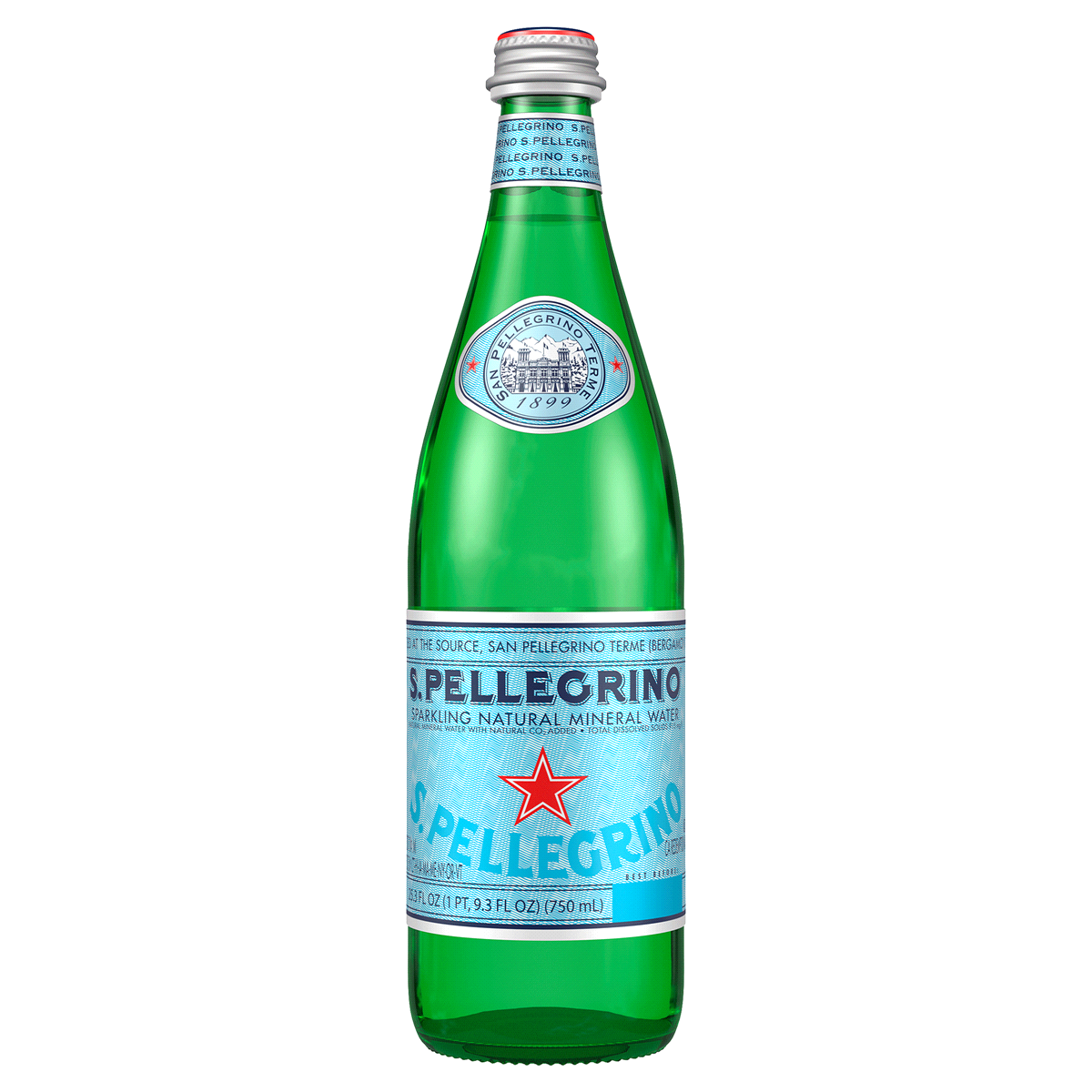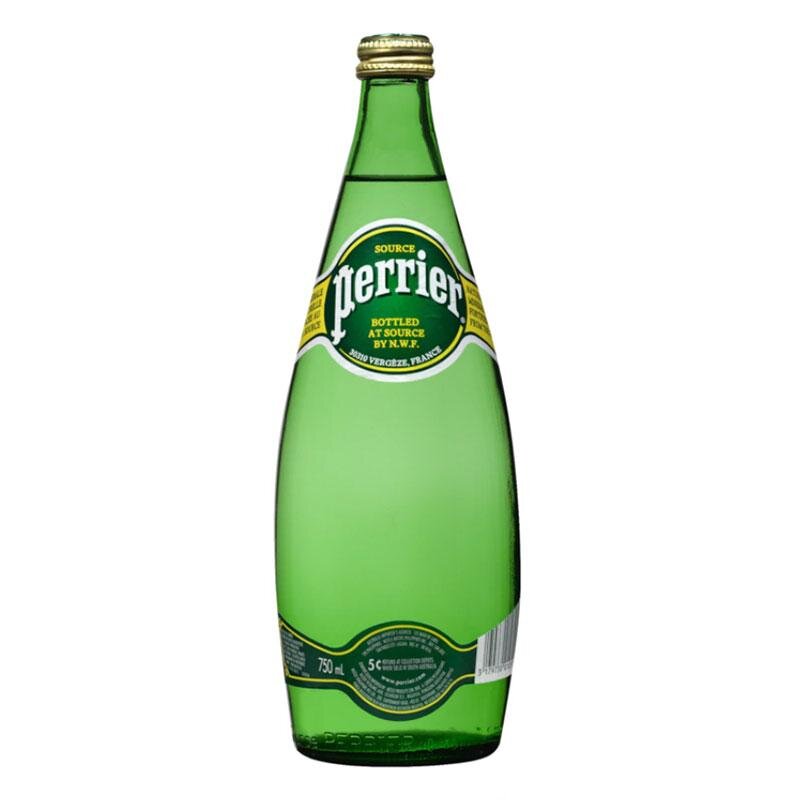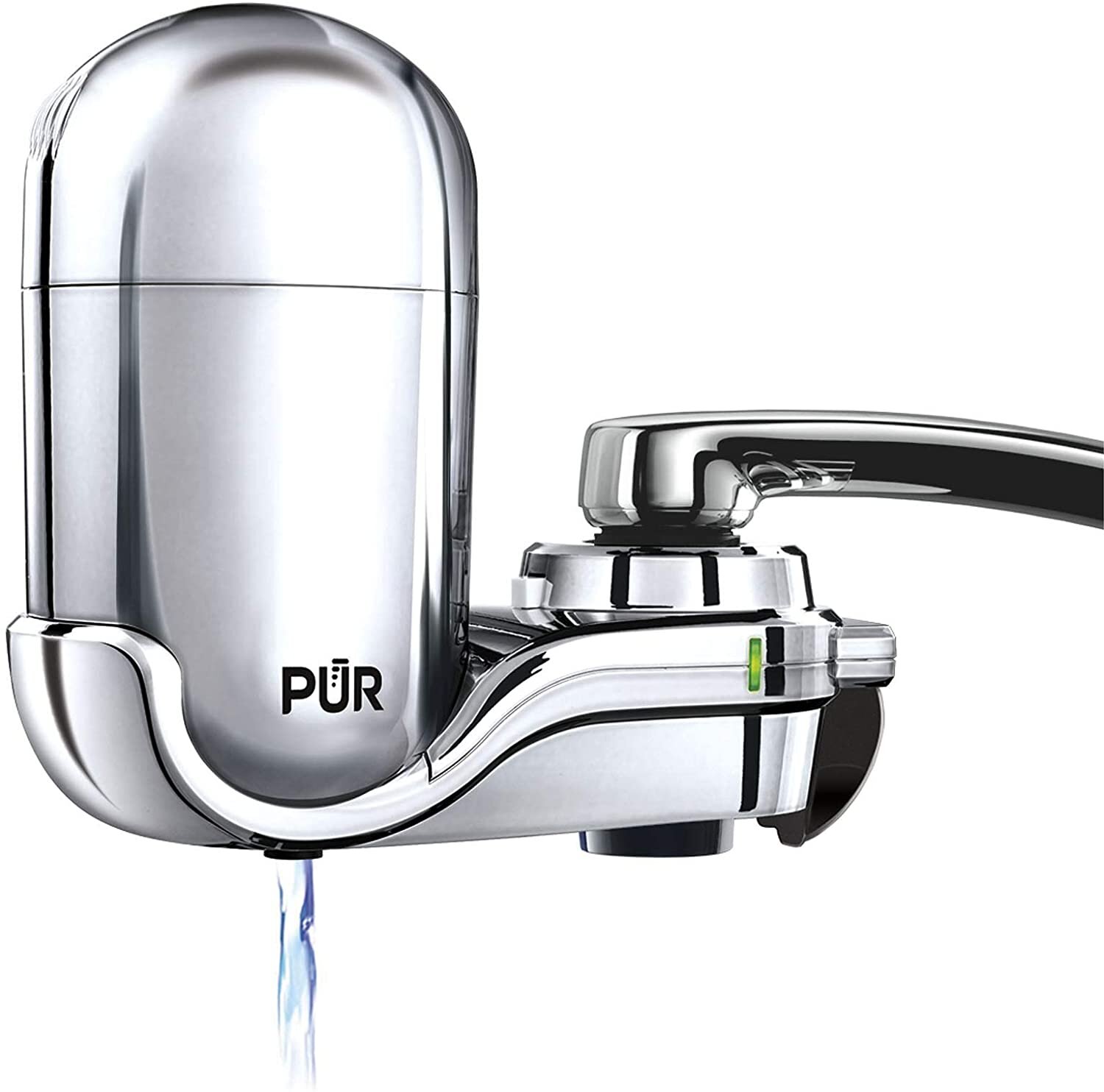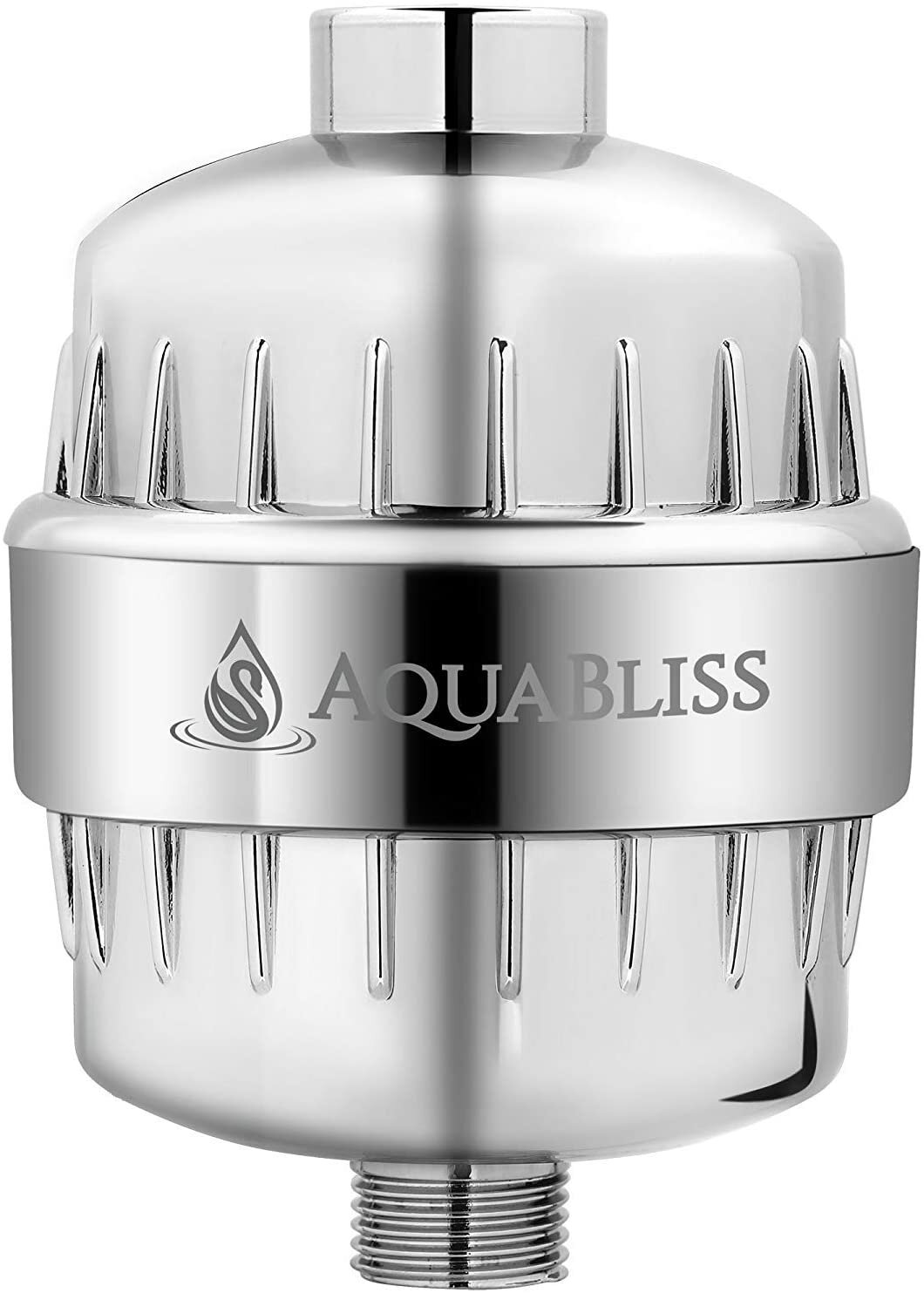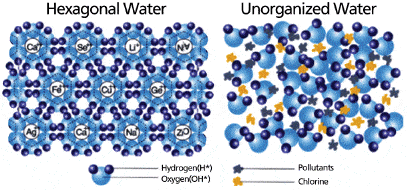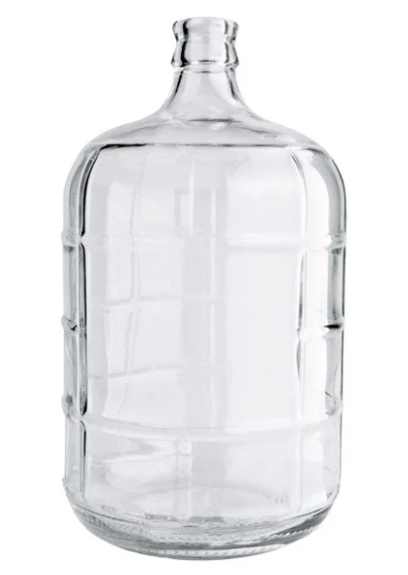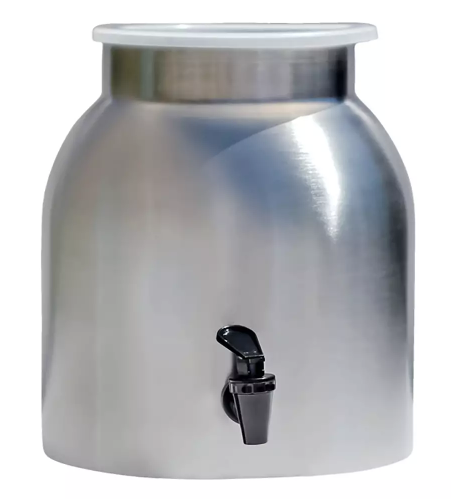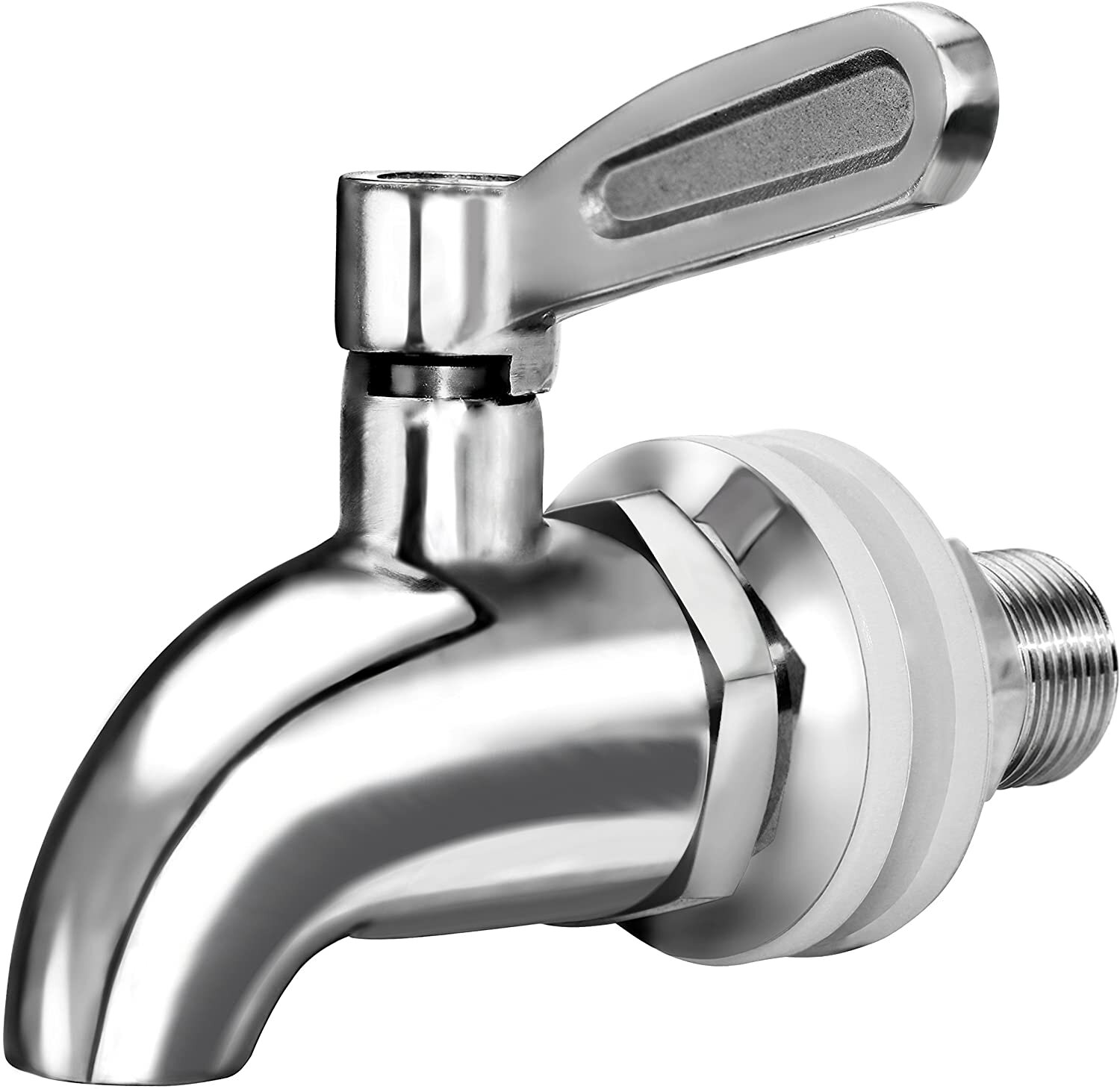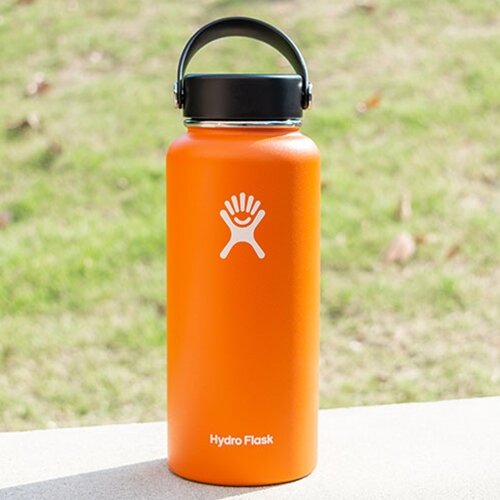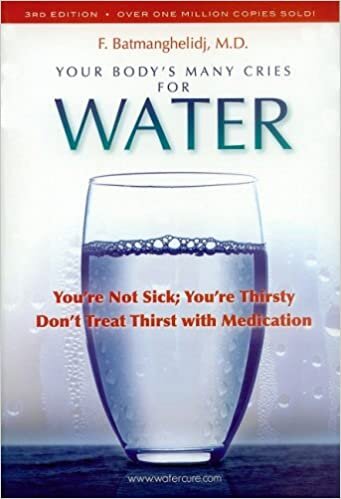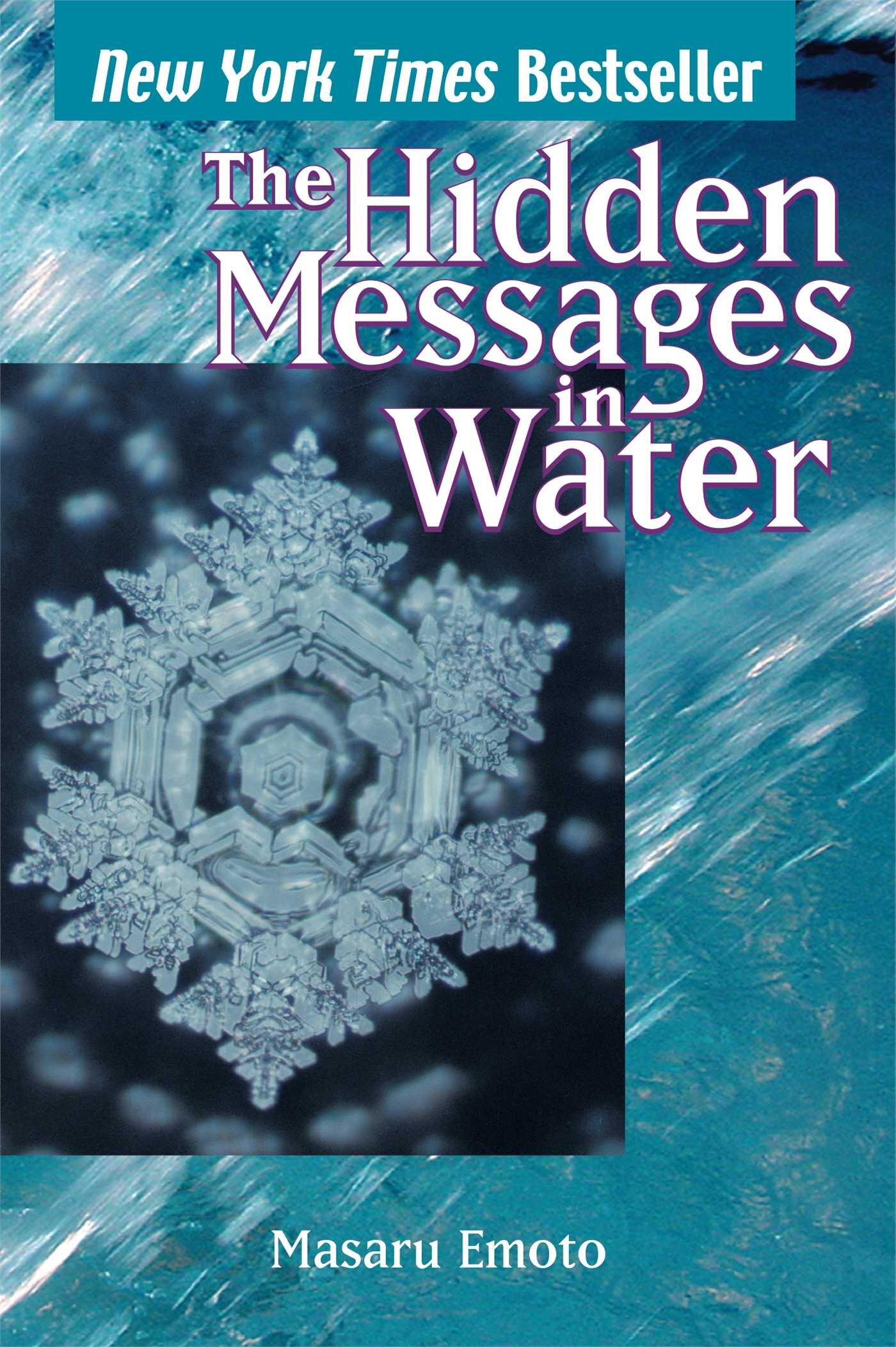Water: The universal solvent
Water is essential for all forms of life! The Earth is mostly covered in water compared to a similar ratio to our body, organs, and glands. We need water to bathe, grow our food, and survive. Even mammals like monkeys and great apes similar to us drink water. We can’t live without it so don’t believe anyone who claims that they can go without it. Drinking enough water is crucial for the health of your body, including all of your main organs and eliminative channels which are responsible for the body’s natural detoxification process. We need water to facilitate all processes within our body such as transporting nutrients and oxygen to our trillions of cells and to absorb nutrients and convert food into energy, regulates our body temperature, energizes our muscles, lubricates joints, and helps us remove wastes from the body. Shockingly, 75% of Americans are chronically dehydrated and is one of the most common and preventable medical condition in the world.
With that said, not all water is created equal as there are many types and thousands of different brands of water to choose from confusing people on which water is the best. Below I discuss the most common types of water and what you should know about each them so you can choose which is right for you. Keep reading to find out what kind of water I drink and how much water we all need to drink as well.
Glacier or SPRING water
Springwater is hands down the most natural and healthy source of water that we can drink. It’s actually living water and the closest to nature that we can get. It’s the most ideal, cleanest, and purest water source that our planet provides us to drink. Mineral springs contain a high number of negative ions which can help promote feelings of physical and psychological wellbeing. The human body is like a magnet attracting – in the form of positive ions- heavy metals, free radicals, and other chemicals present in our food, air, and water. Springwater contains vital nutrients, oxygen, and the perfect balance of trace minerals such as magnesium, calcium, sodium, and potassium that the body needs. These minerals aid in digestion, helps us maintain a healthy weight, and makes water taste great. According to the National Center for Biotechnology Information, minerals are essential and extremely beneficial for your body’s functions.
In hydrology, a spring is a point at which water flows from an aquifer to the Earth's surface. Subterranean water at the surface of the ground or directly into the bed of a stream, lake, or sea. With spring water, you’re getting water that hasn’t been tampered with or manipulated. These waters are relatively clean and free of toxins. The spring water you drink should be bottled at the source and proven to be actual living spring water. Unfortunately, only 55% of the bottled water that claims to be spring water actually is bona fide spring water. 45% is just treated tap water. These will not give you the same benefits that spring will, nor will it have the refreshing, unique taste that real spring water has so it’s important to check the authenticity of spring water.
You can normally find spring water in plastic water bottles so be sure to purchase this water a in glass (colored glass is best). You can also fill up yourself with a glass or reusable BPA free container from a local spring in your area. Be sure to always determine where the water company extracts the water.
mineral water
Mineral water is essentially spring water that has had more minerals added to it. It has 250 minerals per million solids. Sparkling mineral water is bottled containing the same carbon dioxide that was at the source of the spring.
Because of the additives in this water, there can be a bit of a distinctive taste to it. Not all of the additional minerals are necessary for the body, and not everyone can process them. In addition, there is a distinct taste that is off-putting to mineral water, which puts it behind spring water. It doesn’t taste as natural or pure because of the additional minerals.
Mineral water is essentially spring water that contains minerals added to it such as magnesium, calcium, sodium, and zinc contains a distinct, yet slight mineral bite. . Mineral water may usually be still or sparkling (also known as carbonated or effervescent) with the presence or absence of added gases contains a distinct, yet slight mineral bite. It has a constant level and relative proportions of mineral and trace elements containing no less than 250 parts per million total of dissolved solids.
Mineral water typically comes directly from the source of natural springs. While not all mineral water is “sparkling”, the bubbly varieties get their effervescence from naturally-occurring gases. After mineral water is bottled, more carbon dioxide may be added artificially by manufacturers. Because it is filled with a high number of naturally-occurring minerals like magnesium, potassium, and calcium, sparkling mineral water
Without getting sufficient minerals, you can in turn dehydrate your body. Mineral water does indeed have some health benefits since it provides minerals your body can’t create on its own. It can also help aid in digestion, and many people even like the taste of it over tap water, though that’s down to personal preference. One of the main downsides to mineral water is cost, as many of the minerals from this type of water can also be obtained from a healthy plant based mineral rich diet .
Th main characteristic of natural mineral water are the trace minerals and mineral salts that it contains. It must be obtained directly from underground sources protected from pollution risks, and which are highly regulated (in some countries, these sources must undergo 2 years of frequent testing for microbes in order to be certified). Natural mineral water must also be packaged close to its source, and cannot be subjected to most treatments, except for carbonation, or removal of iron and/or magnesium.
Your body cannot create the minerals found in water. But you can still get these minerals from a balanced diet without drinking mineral water.
The minerals within mineral water enhance the body in the following ways:
Strengthening bones
Regulating blood pressure
Managing circulation
Aiding in digestion
Mineral water has a richer taste than other types of drinking water because of the mineral levels. You can buy mineral water from your local grocery store. However, it is more expensive when compared to other drinking sources.
Sometimes referred to as carbonated water or soda water, sparkling water is infused with carbon dioxide gas while under pressure. Filtered sparkling water, or seltzer water, is made of just two ingredients: still water and carbon dioxide. When plain water meets carbon dioxide, it becomes carbonated or “sparkling.” Because of its simplicity and pure, clean taste, you will find that sparkling water can be just as refreshing as still water - but often, more enjoyable due to its effervescence. Sparkling water offers a different mouth feel to flat water, which could be a welcome change if you want something fizzy without sugar or artificial sweeteners. That said, there are flavored sparkling waters available that do contain one or both types of sweeteners. Plus, because sparkling water tends to be mineralized — think Perrier and San Pellegrino — you’re getting the added bonus of health-promoting minerals with your carbonation. While there are some minerals present in sparkling water, there aren’t enough to be truly beneficial to your health in a meaningful way. In addition, it can be expensive compared to both tap and certain types of bottled water.
groundwater or well water
Well water is water that comes straight from the ground. This is the ultimate raw water because it’s untreated and has never seen pollution. The cost of operating well water is much lower than the monthly bills paid for city water. Nevertheless, no matter the water source, contaminants and impurities can still find their way into your water so it would be best to test this water on occasion and even put an arsenic filter on it.
On the bright side, well water contain minerals which are beneficial to human health. If you happen to live in an area where wells are plentiful, or you even have one in your own backyard, the convenient access to what seems like fresh water could be attractive. While there are many proponents of raw, untreated water, the benefits may not outweigh the potential risks. With that said, there are steps you can take to ensure your well water is suitable for drinking.
For example, testing your well water annually for bacteria, nitrates, and pH levels. It’s also possible to install a filtration system. While well water used to be the norm, there’s a reason that city water supplies and the regulations surrounding them were put into place — you simply don’t know what you’re getting unless you test or treat the well water yourself.
purified water
Purified water is any type of water that goes through a mechanical filtration process and and treated until it contains 10 parts per million or less of dissolved solids. It is typically sourced from tap or groundwater which has been treated or processed to remove impurities or harmful substances such as chemicals, contaminants, bacteria, fungi, and parasites. This means that drinking it is pretty much guaranteed to be safe. Below are the most common ways to purify your water:
Reverse Osmosis
Distilling
Filtration
Deionization
Chlorination
Boiling
UV light
In most Western countries, public drinking water is purified to make water safe for human consumption. However, standards for drinking water around the world vary and are typically based on governmental regulations or international standards. In fact, the World Health Organization estimates that over 2.1 billion people lack access to safe drinking water.
When water is “purified”, everything is stripped from the water: Chemicals, bacteria, sediment, metals, minerals, and more will all be completely removed. This leaves the water empty and bland, since some of the missing minerals are what gives water its flavor and most importantly, health benefits. This is why it’s crucial to eat a plant based diet rich in minerals. If you drink purified water, be sure to consume mineral rich foods into your diet such as leafy greens, see vegetables, fermented foods, avocados, and even wild rice.
REVERSE OSMOSIS
Reverse Osmosis is a water purification process that works by using a high pressure pump to increase the pressure on the salt side of the RO and force the water across the semi-permeable RO membrane, leaving almost all (around 95% to 99%) of dissolved salts behind in the reject stream.
Removes cholride and fluoride
If you want reverse osmosis water, you can also buy a reverse osmosis machine for your kitchen sink or entire house, including your shower. It filters out most contaminants through semi-permeable membranes and can eliminate pollutants such as:
Arsenic
Lead
Fluoride
Copper
Radium
Sulfate
Chloride
Pharmacy drugs
The reverse osmosis method can get rid of many other pollutants that are normally found in water supplies. And it can filter out estrogen from birth control pills.
Like distilled water, reverse osmosis contains no minerals or nutrients. However, you could get the minerals from your diet or add minerals to your water.
A reverse osmosis machine is not expensive. Or, you can buy it by the gallon from your local health store for 30 to 40 cents in most areas.
While not as beneficial for the body as live spring water, filtered water is better than none at all. Reverse osmosis water filters are excellent tools for purifying water, even after a carbon filter has already been used on it. They remove many contaminates that are still left behind by the carbon filters and create healthy, fresh water for drinking.
distilled water
Distilling water is a purification process where water is boiled into vapor or steam which is then condensed back into liquid in a separate container. Impurities from the original water that do not boil below or near the boiling point of water remain in the original container. It is a viable option if you live somewhere or are visiting somewhere where the tap water supply is could possibly be contaminated. Distilled water is essentially free of contaminants like pesticides and bacteria, which could be especially helpful to those with weakened immune systems and impaired kidney function.
While distilled water is one of the purest types of water, it’s not necessarily the healthiest. Despite the distillation process is very effective at removing potentially harmful contaminants, it also removes the natural minerals and electrolytes found in naturally in spring water which are extremely beneficial for human health. The process of distillation takes the evaporated steam yet removes all the beneficial electrolytes and trace minerals from distilled water, leaving it essentially neutral. In fact, distillation typically removes around 99.9% of all minerals found in tap water (16). Though water is not typically thought of as a source of minerals, any factor that leads to a decreased intake of essential micronutrients can still impact your health over time and may even lead to deficiencies.
Distilled water is ok to use on occasion especially while detoxifying the body. would be next. If you want “superior hydration” then you would need to drink enough water for your needs (which people don’t) and eat a diet high in water rich fruits & mineral rich vegetables (predominantly raw). The mind of man likes to over complicate things. We cannot improve on nature so don’t trust short term anecdotal “benefits”. Although distilling water makes of pure, it also removes healthy minerals the body needs, which means drinking it for any length of time can lead to mineral deficiencies over time. Also, once it comes in contact with the air, distilled water absorbs carbon dioxide, which makes it acidic. When it is ingested, that goes into the body and may cause excess acid. With all of this in mind, it’s clear to see why distilled water is the low on my list of purified waters to drink. It’s ok to drink on occasion but not as your main source of water. Normal distilled water has a pH of less than 7.0 and acidic because it dissolves carbon dioxide from the air. Distilled water is safe to drink. But you'll probably find it flat or bland. That's because it's stripped of important minerals like calcium, sodium, and magnesium that give tap water its familiar flavor. What's left is just hydrogen and oxygen and nothing else.
filtered water
If you don’t properly filter out impurities from your water then your body will become the filter and you don’t want that. Remember, not all filters are created equal and not all filters remove all impurities. Filtered water typically uses carbon and water only blocks out chlorine, but not fluoride which can can create issues if consumed in large amounts.
alkaline water
Alkaline water is any water that has been ionized, meaning the pH level of water has been altered and increased. The pH level is a number that measures how acidic or alkaline a substance is on a scale of 0 to 14. For instance, if the level is 1, it means the substance is very acidic and if it is 13, it is very alkaline. Alkaline water has pH level of about 8 or 9. Pure water is considered to be neutral or right at 7 on the pH scale. The fact that this type of water has a higher pH level has led some people to believe that it may help neutralize acid in the body, help slow the aging process, or even prevent cancer but there is very little conclusive evidence or scientific evidence that this is true.
In my honest opinion, alkaline water is a scam. It’s simple science. Your stomach acid needs to stay acidic, anywhere from 1.5 to 3.5, not alkaline. Your stomach releases hydrochloric acid to break down food and will neutralize anything that has a pH over 3.5. Raising the alkalinity of water doesn't do much for you since your stomach would have to work even harder to maintain an acidic pH. Your blood is slightly alkaline, with a pH between 7.35 and 7.45. Alkaline water cannot impact blood alkalinity. Saying that expensive water provides more “hydration” and “healing properties” than any other water is both false and misleading. We cannot improve the upon nature.
Drinking nothing but alkaline water could reduce your stomach acidity, thereby lowering its ability to kill off harmful bacteria. You don’t want to alter your stomach acid or make it work even harder than it already does to neutralize it.
Storing alkaline water in plastic bottles on the shelf further exacerbates our plastic problem including xeno estrogens
Do yourself a favor and save your money by not purchasing alkaline water. These waters make lot of people money, but not a lot of sense.
ionized or kangen water
Kangen, which means “return to origin” from Japanese mythology, is a form of alkaline water that uses a portable water ionizer that produces custom pH water to use for drinking, cooking, skin care, and cleaning. The drinking water is electrolyzed into hydrogen-rich reduced water. These hydrogen molecules are said to contain antioxidants that supposedly attack harmful free radicals in the body. Many of the claims made are unsubstantiated and anecdotal therapeutic claims.
However, hydrogen water is more expensive than other water sources. Or, you can purchase a molecular hydrogen generator for your home. Drinking hydrogen water is a pricier option and may not be the best solution if desire a cheaper drinking source.
Your internal pH is highly regulated, and is also varied in different organs.
Our stomach pH for example, is highly acidic in order to break down proteins, while our intestinal pH is more neutral to help absorb nutrients. Our blood is even more highly regulated and maintain a pretty even 7.4 pH so the water you drink will not affect your blood pH.
Kangen water is being promoted as a panaceda or “cure all” for health issues when diet and lifestyle is much more powerful and has been backed by actual evidence.
in healthy people—but our bodies regulate these organs and systems naturally, thanks to chemical buffers and our respiratory and renal (urinary) systems.
those who are concerned with their body’s pH levels should focus on consuming more whole foods with proven anti-inflammatory properties rather than ingesting foods or drinks that lack a history or longitudinal evidence of safe use for optimal health.
In my personal opinion and experience, you don’t need to spend thousands of dollars to hydrate your body. If you’ve experienced short term benefits by drinking this water, that’s great, but let’s see the long term effects. Just because there are “studies” isn’t conclusive evidence to prove safe and effective long term. If you spend thousands of dollars on water then you better feel something. Ask yourself, is it worth it to you and many others.
alkaline/electrolyzed water is that it poses a threat to our stomach acid and gut flora. Our stomach acid is highly acidic and we need to keep it that way.
Kangen water units are the most expensive and start at $2,500 to $3,000 and go up to $4,500 to $5,000. By spending this much on a water machine, you better notice a difference but ask yourself are they life changing differences and is it worth it financially? Initial “benefits” aren’t always conclusive. There’s a reason why the placebo effect works and is included in medical trials. There’s no doubt that most of our water is contaminated so purified water is necessary but people talking about how hydrated they feel on this water haven’t been raw long term. If they want to spend thousands on a water machine and hundreds on the filters then go ahead. It’s just not necessary as we cannot improve upon nature.
Multi level marketing and pyramid scheme. These machines are expensive but mainly expensive because of the large commissions people receive when they sell a machine.
In my opinion, Kangen water is an expensive placebo claiming to hydrate better than pure spring water from the earth. It’s extremely overpriced and pays distributors large commmissions.
Expensive placebo
Bogus health claims
More hydration
Overpriced machine marked up to pay distributors commissions
You want your stomach acid low
Our body neutralizes the ph so it’s unnecessary
MLM water ionizers is a great business strategy but makes one extremely biased.
False deceptive misleading advertising
Detox obsessed
One does not need to buy expensive water ionizers to achieve optimal health. If you want more hydration then follow a high raw or 100% raw food diet long term and drink predominately spring or purified water. It’s a much easier and more affordable option.
municipal or tap water
Even though municipalities regulate tap water it is still loaded with polluants, problem is most egregious in rural areas, but a few major cities face a widespread threat of contamination. Some of the most common contaminants found in tap water included lead, which can produce permanent brain damage in children, and PFOA, which has been linked to cancer.
The largest particulate matter found in municipal water is toilet paper and tampon
Are you being medicated without your consent
Tap water is known to contain at least
Municipalities have been adding fluoride to our water for decades. Fluoride was initially added to water as a measure to combat tooth decay but if the government cared so much about your teeth then how come dental cleansing s aren’t free?. However, there is increasing debate about fluoride in our water as the substance is intended to be topical and can have toxic properties when ingested. Furthermore, fluoride is not an essential nutrient and is not necessary for any biochemical process.
While concentrations of fluoride in drinking water are regulated, there is no way of controlling the dosage meaning the same amounts go to adults, children and the elderly. As more cities work to provide fluoridation as an optional byproduct in their water precautionary individuals can be proactive about the amount of fluoride in their water by installing a water filtration system.
True, although the same applies to tap and bottled water.
There are multiple studies of waste water, drinking water and bottled water (see above) that conclude that our water is contaminated with pharmaceuticals, hormones and contraception residues.
One study specifically about contraceptions in drinking water conludes that although there are traces from such drugs there is a much bigger problem with meat, fish and vegetables.
Talk about the flint water crisis
structured water
If you’re in the raw food and detox community for long enough you will hear the term “structured water” which a lot of people use to describe water in the form of fruits and vegetables. Structured water actually refers to water with a structure that's been altered to form a hexagonal cluster. This cluster of water molecules is believed to share similarities with water that hasn't been polluted or contaminated by human processes.
How the molecules in water relate to each other. The water that nature produces. Water that flows over rocks have a more neutral pH and a lower surface tension, higher oxygen content
Structured water is a molecular arrangement of water molecules that exists when water is near hydrophilic (water loving) surfaces. Much like ice, water molecules join together in hexagonally structured single layer sheets. Unlike ice, however, the sheets are flexible and move independently as they are not glued together by protons. The majority of the water in your body is structured water as your bodily tissues are hydrophilic.
The body processes pure water much differently than it does the water found in fruits and vegetables.
Structured water in a home or yard will remove any toxic “water memory” from water, for drinking, showering, laundry, or an entire property. Birds and bees are more present near properties with structured water. Air contains water – if it didn’t we couldn’t breathe. When water is structured, the water in the air in contact with it, such as in a lawn, swimming pool, sink, etc., will get structured too, creating a more attractive environment for nature around us. Areas with structured water feel palpably different.
Avoid “unstructuring” water thru heating with microwaves, electric kettles, etc.
https://www.healthline.com/health/structured-water#takeaway
https://belifewater.com/water-structuring-devices
water memory
Dr. Masaru Emoto, the Japanese scientist who revolutionized the idea that our thoughts and intentions impact the physical realm, is one of the most important water researchers the world has known.
Love your water – Your loving appreciation of water can go a long ways to cleaning up anything inharmonious in the water near you. Love and gratitude are very strong influences, stronger than whatever else may have been recorded by the water, and will immediately improve water anywhere. by helping to restore water to its natural coherence.
which water do i drink?
I personally drink a mix between spring and purified water such as reverse osmosis water. Having a whole house RO is a excellent choice but you can fill up, get delivery, or purchase water from your local health food store or water company. I have drank purified water like distilled water on occasion during periods of cleansing but I have not noticed any life changing benefits or major difference from drinking it. The most important thing I look for in the ware so choose is that I’m getting it from a clean and pure source that is closest to nature as possible. I even water fasted for 26 days on spring water so this will always be my preferred source of water. When it comes to the type of water you choose, just do your best!
Where to get water
You have many options of where to purchase water:
Fill up a reusable container at a local spring
Fill up a reusable container at a natural health food store
Fill up a reusable container at a specialty water store
Purchase spring water in glass at the store. Ask for a case discount the more you buy.
Purchase water delivery
Purchase a whole house water filtration system
https://firstquarterfinance.com/drinking-water-refill-station-near-me/
how to store water
The best way to store your water is in glass. Colored glass in amber, cobalt blue, or green offers protection from most light wavelengths under 450 nm, making it the best choice for optimum protection against damaging UV light. Cobalt glass bottles can provide adequate protection from light depending on your product as it absorbs more light than clear glass bottles.. I know it may not be easy to carry these around, but there are great brands out there that make it possible like Blue Bottle Love or Life Factory. Hydro Flask is another great option that uses stainless steel to keep water or your liquids at a stable temperature, even in the heat or cold.
Please not purchase single use plastic bottled water bottles to store your water in. These can leech harmful chemicals into your water which you can ultimately absorb. Even fancy artesian waters like Fiji contain xeno-estrogens which can disrupt endocrine function. Always opt for glass bottles and refillable BPA free bottles to protect the environment and your health.
how much water should you drink?
Since 75% of Americans are chronically dehydrated and it is one of the most common and preventable medical condition in the world. Many people and even health professionals recommend to drink half of your body weight in ounces but this may not always be enough. The National Academies of Sciences, Engineering, and Medicine recommend that men drink an average of about 3.7 liters (125 ounces) of water each day and that women drink about 2.7 liters (91 ounces). Women who are pregnant or breastfeeding need additional fluids to stay hydrated, according to the Mayo Clinic, which noted that the Office on Women's Health recommends that women who breastfeed consume about 13 cups of fluids a day. People run the risk of dehydration more than they risk over hydration so let this be a friendly reminder to go drink more water.
“You’re not sick, you’re thirsty. Don’t treat dehydration with medication. ”
myths surrounding water
You can get all the water you need from fruits and vegetables.
This myth has been circulated by many restrictive raw foodists. They assume that the longer you are raw or the more juicy fruit you eat, the less water you’ll need and may even eventually stop needing it altogether. This is certainly not true and can be very dangerous advice for others which has resulted in the death of many. It’s not a competition on who needs the least amount of water or who can go without food the longest. The longer I have been raw the more hydrated I become but that doesn’t inherently take away my need for water. The water we get from our food is different from pure H20 which is needed for our body’s natural processes including our ability to metabolize fruit and sugar. Don’t believe anecdotal stories from instagrammers who only show a tiny part of their life with you. That is not reality.
Adding lemon to your water hydrates you better.
Bottled water is healthier and safer than tap water
Multiple studies of plastic bottled water in US, Spain, UK, Netherlands and other countries conclude that bottled water is frequently contaminated with plastic, xenoestrogens, and even pharmaceuticals.
Researchers from the School of Public Health, Immunology and Medical Microbiology of Spain’s Rey Juan Carlos University analyzed ten brand of commercially available bottled water contained 58 active pharmaceuticals, and five of the ten brands contained significant amounts of nicotine. Source: Scientific Total Environment
The Institute of Biomedical Research in Granada tested 29 samples of bottled water sold in Spain as “natural mineral water” and from various natural springs, the results indicate that all samples of water have hormonal activity. One possible source is the plastic bottle. Source: 2015 report in PubMed
Laboratory tests conducted by University of Iowa Hygienic Laboratory in 2008 found that 10 popular brands of bottled water, purchased from grocery stores and other retailers in 9 states and the District of Columbia, contained 38 chemical pollutants (including pharmaceuticals) altogether, with an average of 8 contaminants in each brand. 4 were also contaminated with bacteria. Source: www.ewg.org
books on water
water crisis
844 million people lack basic drinking water access, more than 1 of every 10 people on the planet.
Women and girls spend an estimated 200 million hours hauling water every day.
The average woman in rural Africa walks 6 kilometers every day to haul 40 pounds of water.
Every day, more than 800 children under age 5 die from diarrhea attributed to poor water and sanitation.
By 2050, at least 1 in 4 people will likely live in a country affected by chronic or recurring fresh-water shortages.
2.3 billion people live without access to basic sanitation.
892 million people practice open defecation.
One of the United Nations’ Sustainable Development Goals aims to provide universal access to clean water and sanitation by 2030.
90% of all natural disasters are water-related.
one last drop
The best type of water for you to drink is the cleanest, most purest water that accessible to you, water that you can afford, and most importantly, that you love.
When it comes to water, there is no need to over analyze or aim for perfection. We all live in an imperfect world and we are all just trying to do our best. You may come across people who swear by one type of water and those who disagree with another. Before taking any advice from others, be sure to check if they are financially tied to their recommendations which can make their claims biased. Also make sure that they have been recommending this advice long term. Don’t take advice from those who haven’t followed their own advice long term. Remember, we cannot improve upon what Mother Nature has already provided to us.







